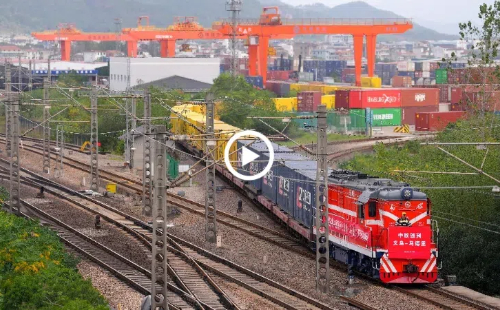More effective investment key to growth
China will implement a series of policy measures aimed at boosting effective investment in a bid to promote steady economic growth this year, officials said on Thursday.
Liu Sushe, deputy head of the National Development and Reform Commission, the country's top economic regulator, said the commission will coordinate effective utilization of policy tools including investment from the central government budget, the issuance of ultra-long-term special-purpose treasury bonds and local government special bonds.
"We will accelerate the approval of local government special bond projects, giving full play to the guiding role of government investment," Liu said at a news conference in Beijing, adding that more efforts will be made to boost private investment enthusiasm and expand technological innovation, spur development of emerging sectors and promote new urbanization, thus expanding the scope for effective investment.
Amid China's push to seek private investment in local government projects through a national unified platform, the private sector has participated in 1,612 such projects worth over 2 trillion yuan ($278 billion) in all as of the end of February, the NDRC said.
With a slew of policy measures aimed at supporting private sector development, private investment rose 0.4 percent year-on-year in the first two months, up from a 0.4 percent decline in 2023, said the National Bureau of Statistics.
Liu said the country is studying and drafting a private sector promotion law in a bid to provide legal safeguards to better support the development of the private economy and create a stable and predictable institutional environment.
To further stabilize and expand private investment, he said the country will also encourage the private sector's participation in key infrastructure projects.
During the meeting, Liu highlighted the importance of fostering new quality productive forces, saying more efforts will be made to promote the integrated development of strategic emerging sectors and create new growth drivers to support regional growth.
Data from the NBS showed China's January-February investment in manufacturing increased 9.4 percent, 5.2 percentage points higher than the overall growth of fixed-asset investment. Notably, investment in equipment manufacturing and high-tech manufacturing surged 14.3 percent and 10 percent during the period, respectively.
Liao Min, vice-minister of finance, said China's strides toward high-quality development and the nurturing of new quality productive forces are expected to offer rising growth opportunities for global stakeholders.
Liao said the country will continue to improve mechanisms to protect the rights and interests of foreign investors, further shorten the negative list on foreign investment, fully ensure national treatment for foreign investors and continue to strengthen intellectual property rights protections.
Looking ahead to the full year, Liao said the country's strengthened coordination of various policies will not only consolidate the economic recovery trend, but also help deepen supply-side structural reforms, promote technological progress and foster new quality productive forces.
Addressing a webinar hosted by the International Finance Forum on Wednesday, Steven Barnett, senior resident representative of the International Monetary Fund in China, said the IMF sees room for China's fiscal policy to be broadly neutral, but rotate away from investment and more toward consumption as a means to help secure economic recovery in the near term.





 play
play